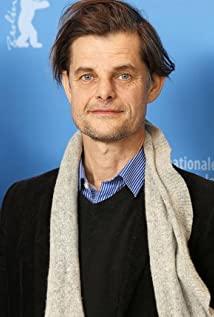Strange, everything is strange. An unknown Eastern European town, a square where even the director himself has been looking for a whole year, an inexplicable era, an unfamiliar riot, unfamiliar languages, unfamiliar shots. If you still have a hazy memory of "Elephant", many long first-view shots, many foreshadowings that have nothing to do with the story, and that inexplicable name, then "Werckmeister Harmonies" will surely awaken the already blurred image. Clear memory.
The 140-minute movie describes a story that brought a huge shock to a small town. In this story, you don’t know what its meaning is, and you don’t know who its main messenger is, because the director has a complete perspective. Is placed on a protagonist who seems to have nothing to do with it. Therefore, all we can do is to watch all these start, develop, climax, end, and remain indifferent.
There is one reason why you think of "Elephant": You just saw everything you can see, just like seeing a small part of this behemoth. You are shocked, but you don't know what it is. What is it. Another reason for that important clue: the carcass of a whale. Janos, the protagonist of the movie, was the only person who saw this whale. He had two recent encounters with it, and he spoke to it. But when the film ended, we discovered the sadness of Janos—he even the only thing he could see was fake. If you trace the memory back to the scene at the beginning of the film, this kind-hearted and curious young man will let one person be the sun, one person as the earth, and one person as the moon like a god, and three people are under his command. The movement of rotation and revolution simulates the structure of the solar system. Janos, standing at the height of a philosopher, uses poetic language to explain the solar eclipse full of artistic sense. Then you will find that in this kind of dominance and being The tragic color of this character under the dominant contrast.
The length of the film is 140 minutes, but the number of shots is only 37 (according to the statistics of an IMDB netizen). You will be surprised to find that a bird’s eye view lens is aimed at a bifurcation, and then you can watch the two people walk their paths in front of you in the visual transition between the picture and your watch; you will also be surprised to find that the lens will Point at the two walking people, nothing happened, but you still have to calmly watch them walk from the door of your house to a place hundreds of meters away. This is the authenticity of the movie. I once imagined that the description of "distance" in the whole movie is completely non-staged, that is, there is a distance of several hundred meters, and the director will let the actors walk the distance of several hundred meters and let the audience watch the distance of several hundred meters. The scarce information on the Internet seems to prove my conjecture. Since the film is not staged in space, the time span it can describe will naturally be very limited. The 140-minute movie only describes about 30 hours of the story, and it is a single-threaded description. The camera only tracks the protagonist.
I don’t know if you feel the same as me about the experience of lack of sleep. When you walk out of the all-night classroom, or the all-night Internet cafe, or after the night out, you go to the next day’s activities seemingly nonchalant, but in fact you find yourself The brain, which has become sluggish, is at a loss for everything that is slowly changing around it, so everything starts to look irrational, and it will not be until the end of the next sleep that you try to think about the hours that you spent in a dream again. However, no matter how unexplainable everything around us was at the time, it is still our daily life, and there is always time to replenish energy when the night falls again, but Janos has been exposed to the most in this life in this non-linear day. All the shocking scenes: In this closed town isolated from all the outside world, he admired God’s heavenly work-the whale that was later proved to be full of absurdity. He experienced a riot of good people destroying good people, and the most Tragically, he didn't even have a chance to return to the real world from this non-linear dream-he went crazy afterwards. . .
The director did not rush through the details of life: Janos cleaned up the room, and the whale manager slowly opened the giant carriage. These all took up a lot of the film's time, and everything seemed natural and harmonious. This harmony made the contrast again for the extremely abrupt shots later. In the Radecki March, the two people tried to dance gracefully with no rhythm, and then the scene was transferred to the officer’s house, where Radecki was also placed. March, while the child jumped on the bed without a rhythm while tapping the tempo with harsh metal, the record was then stuck in one place and played back and forth, and the other child faced the electric fan with his father's brutal tone of Janos. threaten. Such a messy scene just produces positive feedback to the disorganized thinking in the state of lack of sleep.
I didn’t mention the core plot of the movie, because I was also standing close to a certain part of the body of a whale. If I tried to find the background of the plot of the movie, it would be like interpreting David Lynch or Kubrick. Analyzing this movie will really destroy everything about the art that the director carefully designed for us.
View more about Werckmeister Harmonies reviews









